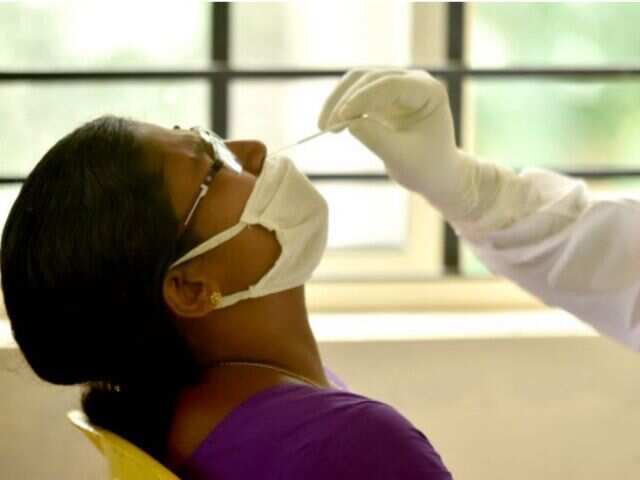Air quality, sewage monitoring may track Covid-19 spread in India

NEW DELHI: The Council of Scientific and Industrial Research (CSIR) is looking at setting up a sewage and air surveillance system in the Indian parliament to find the prevalence of COVID-19 was made to the vice president and chairman, Rajya Sabha said director general of CSIR, Dr Shekhar C Mande.
Dr Mande informed the Vice President that sewage surveillance provides qualitative as well as quantitative estimate of the number of people infected in a population and could be used to understand the progression of COVID-19 even when mass scales tests for individuals are not possible. It is a measure to comprehensively monitor the prevalence of the disease in communities in real time.
Dr Mande pointed out that COVID-19 patients shed SAR-CoV- 2 in stools. Apart from symptomatic individuals, asymptomatic people also shed the virus in their stools.
He presented data of the sewage surveillance carried out to find the trend of infection in Hyderabad, Prayagraj (Allahabad), Delhi, Kolkata, Mumbai, Nagpur, Puducherry and Chennai, and said that it provides an “unbiased estimate of numbers since the sampling is not done at individual level”. On the other hand, the numbers obtained by regular testing depend on the number of individuals tested.
Dr Mande said that sewage surveillance of COVID-19 would be relevant not only to understand the present epidemiology of the disease but would be an indispensable tool for early and easier detection of future COVID-19 outbreaks.He also suggested setting up an air sampling system to monitor viral particles and potential infectivity threat.
“The vice president complimented the scientists for their work and assured the delegation that he would discuss the issue with the Lok Sabha Speaker Om Birla and the government,” as per a statement to the media.
Dr Mande informed the Vice President that sewage surveillance provides qualitative as well as quantitative estimate of the number of people infected in a population and could be used to understand the progression of COVID-19 even when mass scales tests for individuals are not possible. It is a measure to comprehensively monitor the prevalence of the disease in communities in real time.
Dr Mande pointed out that COVID-19 patients shed SAR-CoV- 2 in stools. Apart from symptomatic individuals, asymptomatic people also shed the virus in their stools.
He presented data of the sewage surveillance carried out to find the trend of infection in Hyderabad, Prayagraj (Allahabad), Delhi, Kolkata, Mumbai, Nagpur, Puducherry and Chennai, and said that it provides an “unbiased estimate of numbers since the sampling is not done at individual level”. On the other hand, the numbers obtained by regular testing depend on the number of individuals tested.
Dr Mande said that sewage surveillance of COVID-19 would be relevant not only to understand the present epidemiology of the disease but would be an indispensable tool for early and easier detection of future COVID-19 outbreaks.He also suggested setting up an air sampling system to monitor viral particles and potential infectivity threat.
“The vice president complimented the scientists for their work and assured the delegation that he would discuss the issue with the Lok Sabha Speaker Om Birla and the government,” as per a statement to the media.












All Comments (0)+^ Back to Top
Refrain from posting comments that are obscene, defamatory or inflammatory, and do not indulge in personal attacks, name calling or inciting hatred against any community. Help us delete comments that do not follow these guidelines by marking them offensive. Let's work together to keep the conversation civil.
HIDE